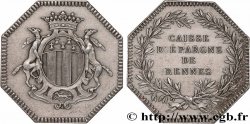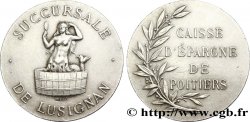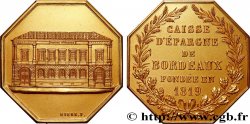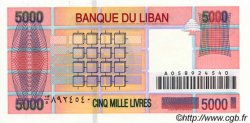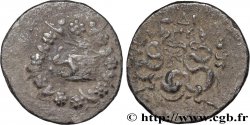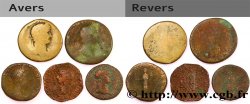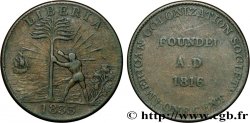E-auction 105-55212 - fjt_073015 - LES CAISSES D'ÉPARGNE Le Havre 1822 (après 1880)
Sie müssen angeschlossen sein und von cgb.fr genehmigt werden, um in einer E-Auktion teilzunehmen.Melden Sie sich an, um zu wetten..Die Kontobestätigungen sind innerhalb von 48 Stunden nach Ihrer Anmeldung gemacht.Warten Sie nicht bis die letzten zwei Tage vor dem Abschluss eines Verkaufs, um Ihre Registrierung abzuschließen. Klickend "BIETEN" verpflichten Sie sich vertraglich, diesen Artikel zu kaufen und Sie nehmen ohne Reserve die allgemeinen Verkaufsbedingungen für den e-auctions zu cgb.fr an.
Der Verkauf wird an der Zeit auf der Übersichtsseite angezeigt geschlossen werden. Angebote, die nach der Schließung Zeit empfangen sind, werden nicht gültig.
Bitte beachten Sie, dass die Fristen für die Einreichung Ihres Angebots auf unsere Server können variieren und es kann zur Ablehnung Ihres Angebots entstehen, wenn es in den letzten Sekunden des Verkaufs gesendet wird. Die Angebote sollen mit ganzer Zahl ausgeführt sein, Sie können Kommas oder des Punktes in Ihrem Angebot nicht erfassen. Bei Fragen klicken Sie hier, um einen Blick auf die FAQ E-Auktionen.
KEINE ANSCHAFFUNGSKOSTEN FÜR DIE KÄUFER.
KEINE ANSCHAFFUNGSKOSTEN FÜR DIE KÄUFER.
| Schätzung : | 75 € |
| Preis : | 25 € |
| Höchstgebot : | 27 € |
| Verkaufsende : | 20 April 2015 15:22:30 |
| Bieter : | 8 Bieter |
Type : Le Havre
Datum: 1822 (après 1880)
Metall : Silber
Durchmesser : 38,5 mm
Stempelstellung : 12 h.
Gewicht : 25,74 g.
Rand lisse
Punze : (corne) 1ARGENT
Kommentare zum Erhaltungszustand:
Un petit choc sur la tranche à quatre heures. Très bel exemplaire avec une patine sombre
N° im Nachschlagewerk :
Vorderseite
Beschreibung Vorderseite Écu aux armes de la ville du Havre posé sur un cartouche et couronné, le tout sur un amas d’objets agricoles et industriels ; au-bas signature RIEUL PÈRE GRAV..
Rückseite
Titulatur der Rückseite * CAISSE D’ÉPARGNE * DU HAVRE.
Beschreibung Rückseite Légende circulaire. Au centre en six lignes dans une couronne formée de deux branches d’olivier : AUTORISÉE/ PAR/ ORDONNANCE/ ROYALE/ DU 16 JANVIER/ 1822.
Kommentare
Exemplaire avec le poinçon corne 1 ARGENT sur la tranche. Les caisses d'épargne, imaginées au XVIIIe siècle, sont nées au XIXe siècle avec la Révolution industrielle et à la suite d'idées généreuses de protection de l'épargne des salariés et de rendre les économies productives tout en les mettant au service de la Nation. La première caisse d'épargne et de prévoyance est créée à Paris en 1818 puis cet exemple est suivi en province entre 1819 et 1823 à Bordeaux, Rouen, Marseille, Nantes, Brest, Metz, Le Havre, Lyon, Troyes, Reims, etc.. Dans les années 1830-1834, cinquante et une nouvelles caisses d'épargne sont créées tandis qu'en 1835, une loi vient les organiser. De 1835 à 1845, deux cent soixante-trois nouvelles caisses apparaissent, privées ou municipales. En 1870, le territoire compte cinq cent vingt-cinq caisses dont sept hors métropole. Les jetons et médailles des caisses d'épargne servent comme jetons de présence. La numismatique des caisses d'épargne a fait l'objet d'une étude d'Yves Jacqmin, Numismatique des caisses d'épargne privées (jetons et médailles), Paris : Le léopard d'or, 1987.
example with the horn hallmark 1 SILVER on the edge. Savings banks, imagined in the 18th century, were born in the 19th century with the Industrial Revolution and following generous ideas of protecting employees' savings and making savings productive while putting them at the service of the Nation. The first savings and provident fund was created in Paris in 1818 and this example was followed in the provinces between 1819 and 1823 in Bordeaux, Rouen, Marseille, Nantes, Brest, Metz, Le Havre, Lyon, Troyes, Reims, etc. In the years 1830-1834, fifty-one new savings banks were created while in 1835, a law came to organize them. From 1835 to 1845, two hundred and sixty-three new banks appeared, private or municipal. In 1870, the territory had five hundred and twenty-five banks, seven of which were outside metropolitan France. Savings bank tokens and medals serve as attendance tokens. Savings bank numismatics was the subject of a study by Yves Jacqmin, Numismatics of Private Savings Banks (Tokens and Medals), Paris: Le polaire d'or, 1987
example with the horn hallmark 1 SILVER on the edge. Savings banks, imagined in the 18th century, were born in the 19th century with the Industrial Revolution and following generous ideas of protecting employees' savings and making savings productive while putting them at the service of the Nation. The first savings and provident fund was created in Paris in 1818 and this example was followed in the provinces between 1819 and 1823 in Bordeaux, Rouen, Marseille, Nantes, Brest, Metz, Le Havre, Lyon, Troyes, Reims, etc. In the years 1830-1834, fifty-one new savings banks were created while in 1835, a law came to organize them. From 1835 to 1845, two hundred and sixty-three new banks appeared, private or municipal. In 1870, the territory had five hundred and twenty-five banks, seven of which were outside metropolitan France. Savings bank tokens and medals serve as attendance tokens. Savings bank numismatics was the subject of a study by Yves Jacqmin, Numismatics of Private Savings Banks (Tokens and Medals), Paris: Le polaire d'or, 1987







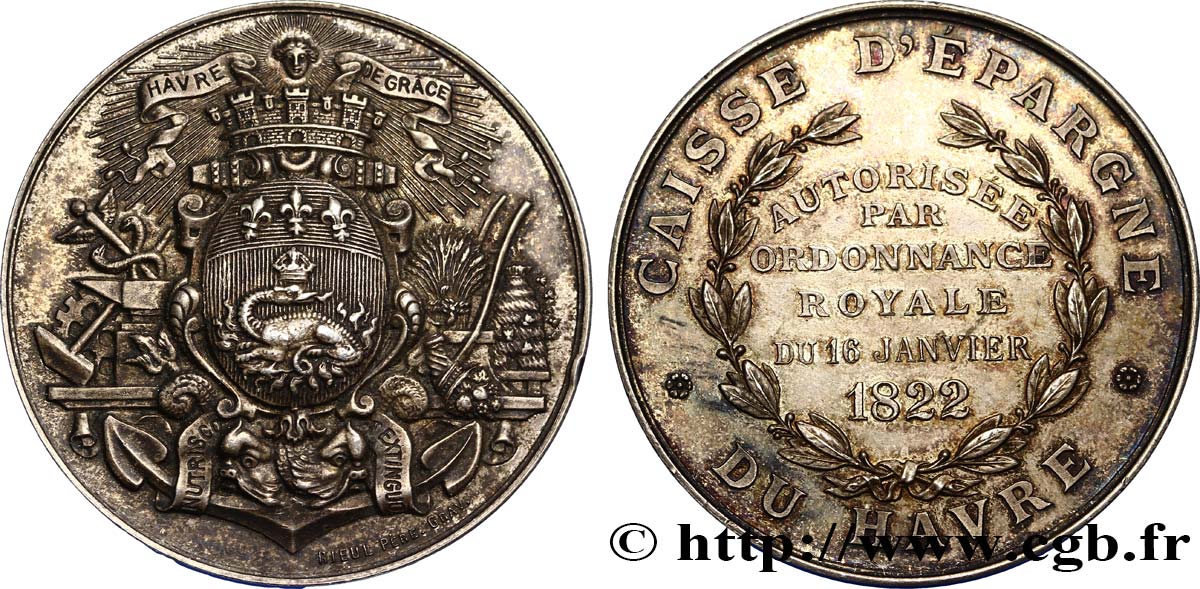
 Berichten über einen Fehler
Berichten über einen Fehler Die Seite drucken
Die Seite drucken Teilen meiner Auswahl
Teilen meiner Auswahl Stellen Sie eine Frage
Stellen Sie eine Frage Einlieferung/Verkauf
Einlieferung/Verkauf
 Details
Details